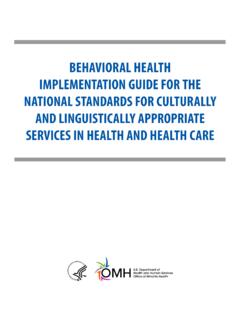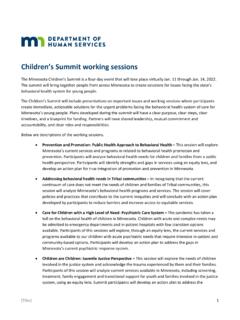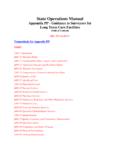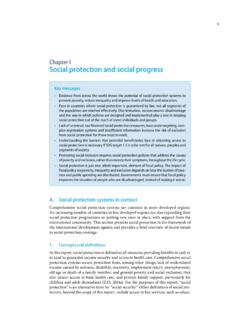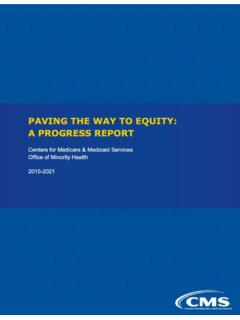Transcription of Teachers’ Difficulties in Preparation and Implementation ...
1 Educational Sciences: Theory & Practice - 13(3) 1664-1673 2013 Educational Consultancy and Research : composed of four dimensions such as aim, content, organization of learning activities and evaluation (Demirel, 2008). While determining aims and contents of curriculum, it is benefited from educational philosophy and also as composing organization of learning activities of curriculum it is made use of educational psychology ( epni & il, 2010). In Turkey, while behaviorist approach was considered in the past, now cognitive approach is adopted in curriculums ( epni & il, 2010). It is seen that this preference is effective to changing of teaching methods and techniques in organizations of learning activities and measurement and assessment approaches in evaluations component of curriculums.
2 Measurement and assessment have important role that determine to development of students cognitive, affective and psychometric skills, resolve to learning deficiencies of unsuccessful students and motivate to successful students (Semerci, 2007). Measurement and assessment is used different purpose in different phases of instructional activities. These assessment types are diagnostic assessment (Pl ss, 2002; Wright, 2001), formative assessment (Bryant & Timmins, 2002; Metin & Biri i, 2009; Metin & zmen, 2010a) and summative assessment (Birgin, 2003; Pl ss, 2002; Wright, 2001). Summative assessment have commonly used in education assessment is sufficient that students are classified into successful or unsuccessful or de-termining whether students learn some knowledge and skills in units or not ( al k, 2007). Validity of summative assessment which only assessed to stu-dents outputs is reviewed together new curriculum * This study was supported Bozok University Scientific Research Council in the Contexts of Research Project, Number: 2013 Mustafa MET N, , is currently an associate professor of Elementary School.
3 His research interests include science education, measurement and assessment in science education, performance assessment and teacher training. Correspondence: Assoc. Prof. Mustafa MET N, Bozok University, Faculty of Education, Department of Elementary School, Yozgat, Turkey. Email: Phone: +90 354 242 The aim of study is to determinate the Difficulties of teachers in Preparation and Implementation of performance task. This study was carried out with 25 teachers (5 science and technology, 5 primary, 5 mathematic, 5 so-cial science and 5 Turkish teachers) who working at elementary schools in Artvin. Sample of study is selected randomly. Case study research method was used in the study. Data gathered with interview, observation and documentary data collection tolls. Obtained data were analyzed with content analyses method. At the end of the study, it is ascertained that teachers do not determine appropriate topics for students level and appropriate criteria for topics and have insufficient knowledge about how prepared rubrics.
4 Besides, it is seen that teachers encounter some Difficulties such as crowded classroom, insufficient time for assessment, insufficient learning environment and technological opportunity and they do not do objective assessment. Key WordsPrimary Teaching Curriculum, Measurement and Assessment, Alternative Assessment, Performance Assessment, Performance Task, Teachers MET NaBozok UniversityTeachers Difficulties in Preparation and Implementation of Performance Task*MET N / Teachers Difficulties in Preparation and Implementation of Performance Task1665and chancing of learning approach is effected to changed measurement and assessment approach (Fourie & Van Niekerk, 2001).New curriculum have been defended that opportu-nity of multi-type assessment is presented by stu-dents in order to demonstrating their knowledge, skills and attitude (Milli E itim Bakanl [MEB], 2005).
5 It is impossible that this situation is carried out by summative assessment. So, it is adopted to alternative assessment instead of summative assess-ment in the new curriculum. One of the differences of alternative assessment from summative assess-ment is the assessment of student performance. This mentions the importance of performance assessment tries to establish what students can do as district from what he/his knows (Mehrens, 1992). It focuses on doing something, not merely knowing, and on process as well as product (Linn & Gronlund, 2000). Performance assessments are defined as concrete and authentic tasks that require students to do something with their knowledge and skills, such as give a demonstration or presentation, or write a report (Nitko, 2004; Shavelson, 1994).
6 It is expected that students produce a material or exhibit a performance. Samples of performance assessment are preparing product, writing a story, drawing a picture (Airasian, 2000; McMillan, 2007), presenting laboratory report and preparing a scientific project ( epni et al., 2005).Students learn independent thinking and not try to find an answer to question with performance assessment (Shepard, 1991). This assessment has some features as reliable, regarding performance, related to daily life, realistic and applicable (Spady & Marshall, 1991). It has been expressed that the performance assessment develops the students writing and self-expressions skills (Airasian, 2001; Birgin, 2003; epni, 2007; Khattri, Reve, & Kane, 1998; Kubiszyn & Borich, 1993; Metin, 2008; Metin & Biri i, 2010), inquiry skills (Khattri et al.)
7 , 1998; Metin, 2008; Morgil, Cing r, Arda, Yavuz, & Oskay, 2004), presentation skills (Airasian, 2001; epni, 2007; epni et al., 2005; Kubiszyn & Borich, 1993; Metin & Biri i, 2010). Besides, it provides prob-lem solving (Baron, 1991; epni et al., 2005; Kim, 2005), science process (Airasian, 2001; epni et al., 2005; Morgil et al., 2004) and high level thinking skills of the students (Bransford, 1979; epni et al., 2005; Kutlu, Do an, & Karakaya, 2008; Linn & Gronlund, 2000; Logan, 1996). Furthermore, it also reveals that the performance assessment is effective for the teaching concepts ( epni, 2007; epni et al., 2005; Metin, 2008; Morgil et al., 2004; Slater, 1996) and removes the studies related to performance assess-ment are investigated in literature, it is seen that these researches focus on theoretical knowledge of performance and portfolio assessment (Airasian, 2001; Baron, 1991; Birgin & Baki, 2007; epni, 2007; epni et al.
8 , 2005; Khattri et al., 1998; Kubiszyn & Borich, 1993; Kutlu et al., 2008; Linn & Gronlund, 2000), effects of portfolio on students achievement and attitudes (Slater, 1996). Besides, there are studies related to effect of performance and portfolio assess-ment on students and teachers (Khattri et al., 1998; Metin, 2008; Morgil et al., 2004), and determining opinions of students and teachers on performance and portfolio assessment (Birgin, 2003, 2008; Kork-maz & Kaptan, 2005; Metin, 2011, 2012; Metin & Biri i, 2011; Metin & Demiry rek, 2009). In the contexts of these studies, although teachers difficulty in Implementation of performance assess-ment in the classroom is partially investigated, it is a need to studies related to investigating to dif-ficulties of teachers in Preparation and implemen-tation of performance tasks.
9 So, it is believed that this study provides important contributions to re-searcher studies on performance aim of study is to determinate teachers Difficulties in Preparation and Implementation of performance tasks. In accordance with this aim, the study specifi-cally focuses on the following research questions: What are teachers Difficulties in Preparation of performance tasks? What are teachers Difficulties in Implementation of performance tasks? MethodIn this study having a descriptive feature, the systematic examination of the meanings occurred from the experiences of the researched individuals by using qualitative approach is aimed (Lincoln & Guba, 1985; Strauss & Corbin, 1998). Qualitative research is a method in which researchers examine subjects in their natural environment, make an effort to comment about it (Denzin & Lincol, 1998).
10 In this study, case study method, one of the qualitative research methods was used. Data were gathered as three data collection tolls which are semi-structured interview and observations and documentary analyses. EDUCATIONAL SCIENCES: THEORY & PRACTICE1666 SampleThis study was carried out with 25 teachers working ten primary schools in Artvin. Universe of study is composed of 90 teachers as 30 primary, 15 science and technology, 16 mathematic, 14 social science and 15 Turkish teachers. Since there are only ten schools in Artvin, five of them having different social-economic levels are selected. Five teachers in different branches are randomly selected in each school. Sample of study consists of 12 men and 13 woman teachers. 5 of them are science and technology, 5 of them are primary, 5 of them are mathematic, 5 of them are social science and 5 of them are Turkish Gathered Process Firstly; the teachers in different branches selected from ten schools in Artvin were informed about the study and interviews were done with them in order to develop semi-structured interview forms used in the study.











